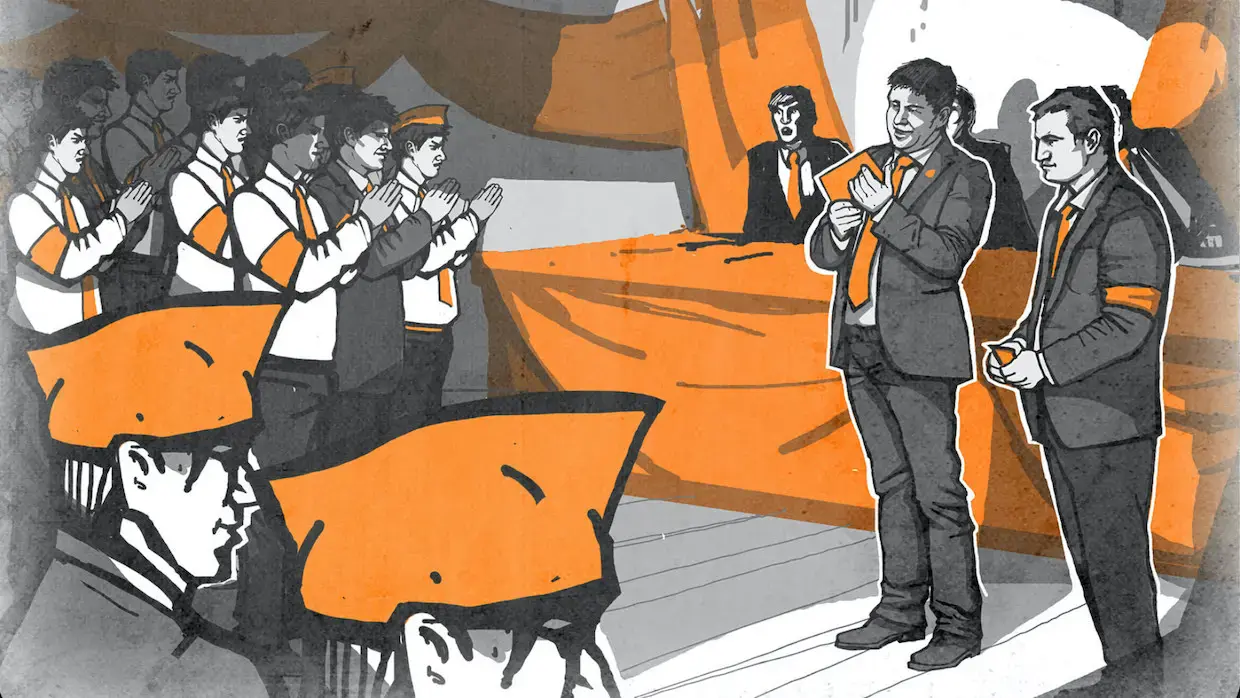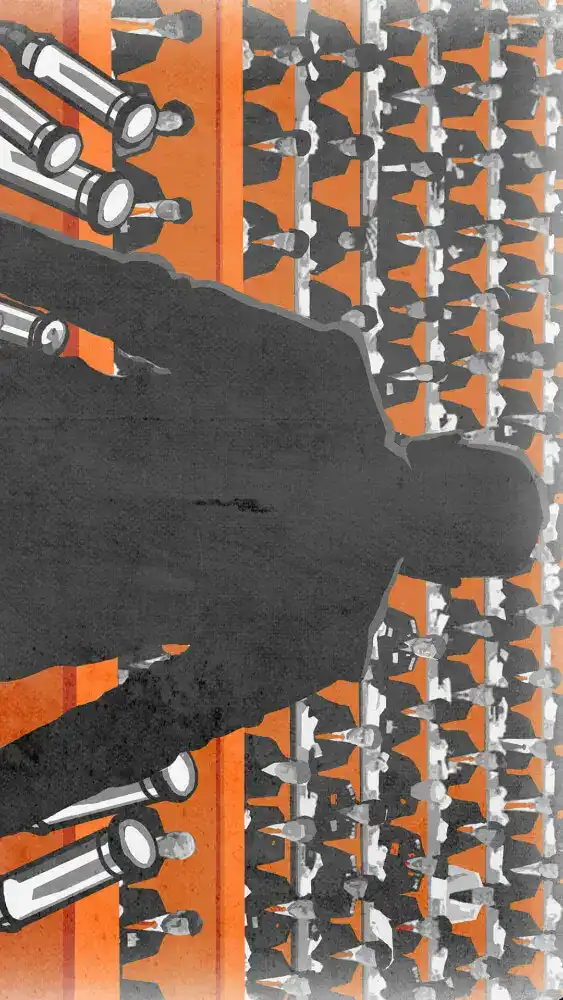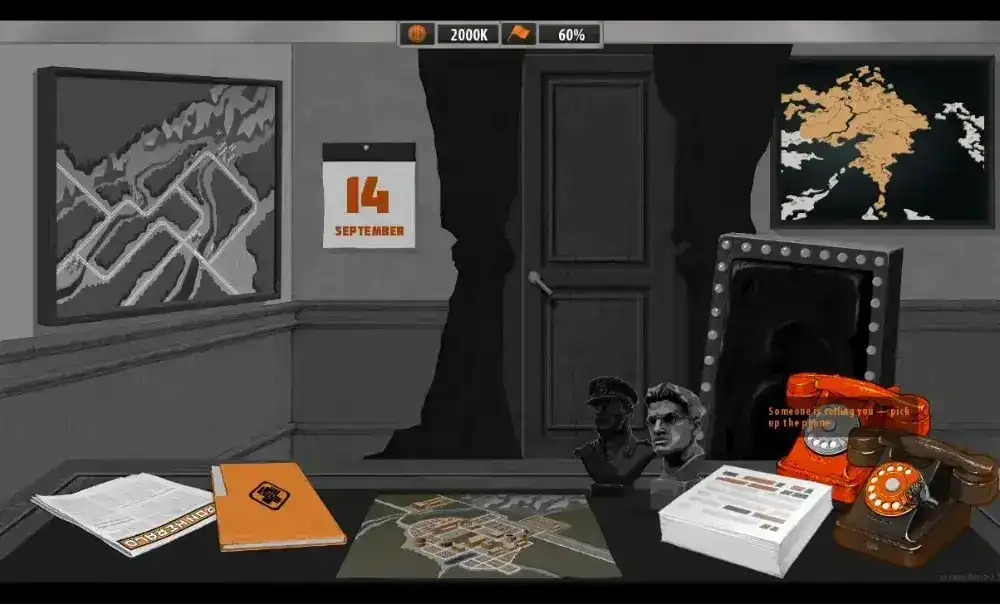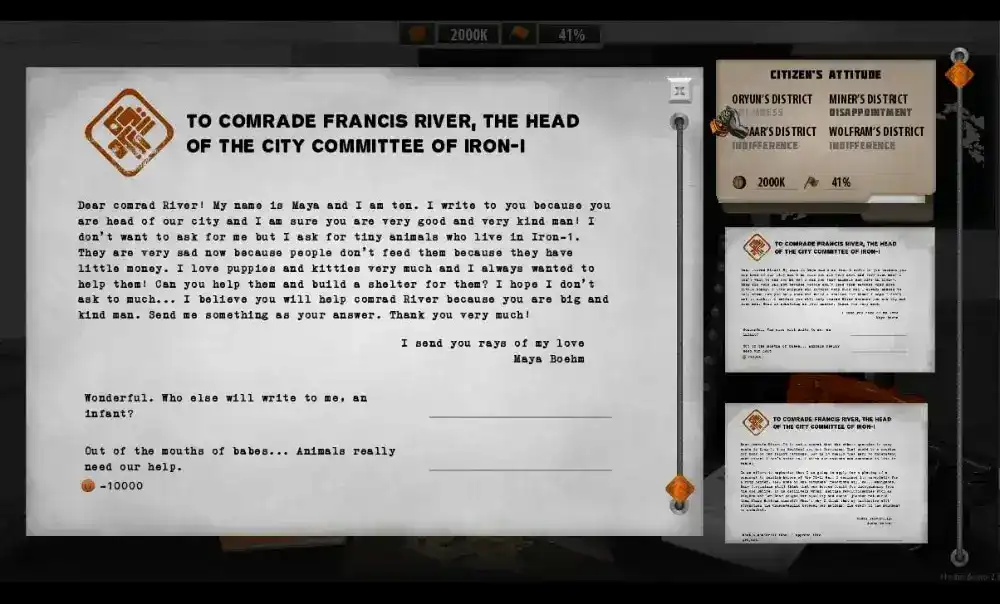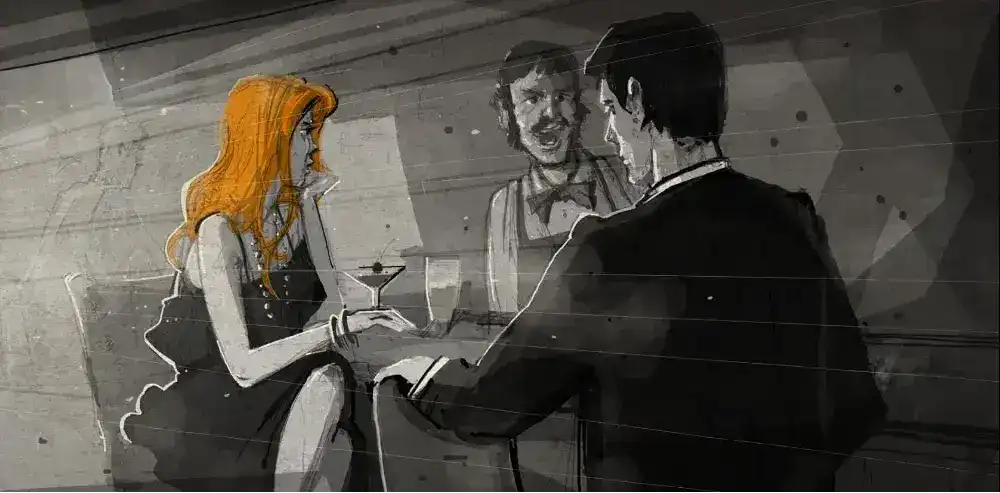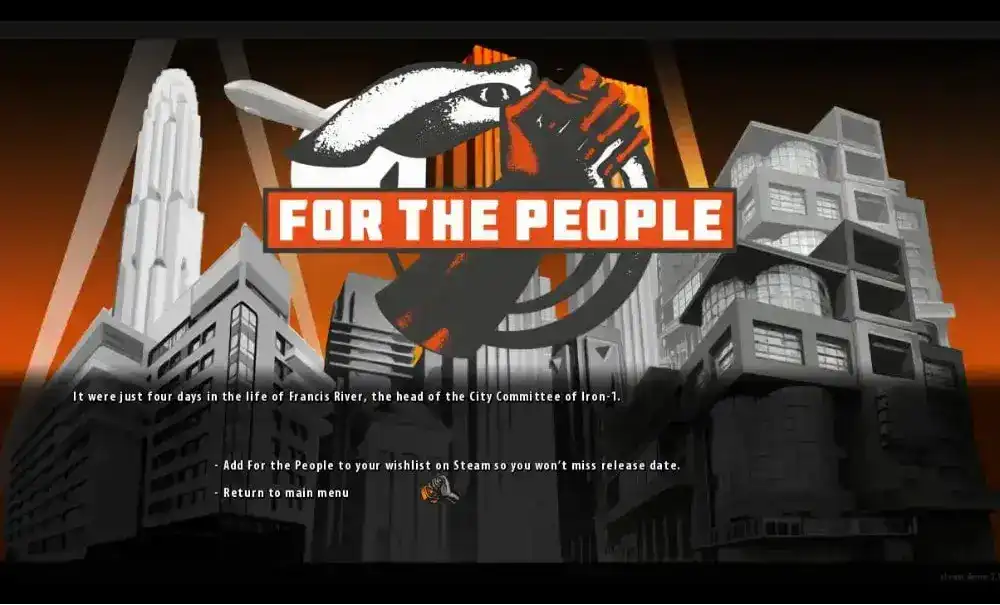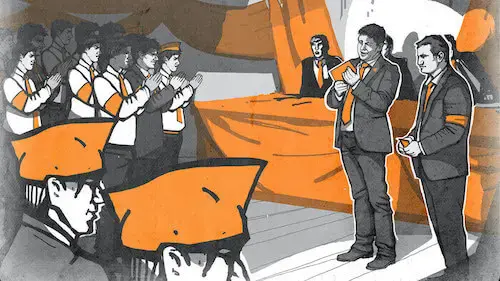I didn't do any research into For The People, developed by Brezg Studio, until I played the demo earlier this week. I like to dive into new games as blindly as possible, just as a personal preference, and For The People's demo certainly left a unique impression. It's a game that wears many hats — visual novel, point-and-click adventure, resource management, morality checker, just to name a few. It’s a hybrid game that combines the best of its genres into a unified experience about living in an oppressive society, questioning how an individual might balance their morals with their duty to that society.
The full game releases on Steam on August 13, 2020.
Who Are The People?
I started up the demo, and I immediately picked up on the atmosphere of the game. I was introduced to the Corvin Empire, a fictional country which recently experienced a political revolution. It has been condemned by the rest of the world, forced to fend for itself. After learning about this bleak history, I was put in the boots of Francis River, a young employee of the Com-Union Working Party, the leading political party of the Corvin Empire.
Francis has recently been promoted to a high office within the state, tasked with overseeing Iron-1, an important industrial center of the Corvin Empire. Plastered with art styles reminiscent of Communist propaganda, fanfare music, and downtrodden faces of the general public, it was obvious to me that this game is as equally concerned with politics as it is concerned with the story of a young man given immense power.
The People or The Party
I was impressed by how quickly the game gets on its feet. After the short introduction, I was taken to the main hub of the rest of the demo — my desk. With everything splayed out in front of me in first person, it did feel as though I was Francis River myself. I was unsure of what to do in my new office, but it became hectic quickly with not much pause between staring down at stacks of documents and answering unscheduled calls with hasty introductions.
I was given dialogue options which were surprisingly lengthy. Each dialogue option let me shape Francis River's attitude towards the political party to my own taste, but at times it also led me down a different branch of dialogue where I was scolded. Even though the game had to, by its design principle, keep the number of dialogue decisions low, it nonetheless made each decision a weighty one: I was often asking myself whether I should hide my sympathies towards the Corvin Empire's citizens in order to appease the officials or try to be the squeaky wheel and express my thoughts openly at the risk of my career.
As I played through more of the demo, more of these decision-making tools became available, providing a deeper look into the society that I was constantly shaping on a day-to-day basis. I had a stack of requests come to the office from concerned citizens or party officials that I had to approve or deny. These requests slowly dripped in more worldbuilding: they helped paint a picture of the citizens that I was in given the power to help.
One citizen was concerned that the city's plan to build new roads in Iron-1 would disrupt the wildlife in the nearby forests and requested that I revise the plan. Another citizen requested that I increase police patrols to catch drunken soldiers from the nearby military station, as they had been causing too much trouble at the local bars. How you resolve these issues has direct effects: disapproval from the Party, a negative response from the local community, or praise from select citizens can define your impact on the city.
That's how For The People sucks you in: being Francis River felt like I was personally adopting his newfound role in society — it was up to me to decide how I should navigate being the middle-man of those below, and those above. And, being a resource management game, my actions had clear consequences.
The "Novel" Aspect
One of the things that drew me to For The People is that it calls itself a "social novel." I can understand how there could be doubt about this statement, given that the game is also a resource management title. But after playing the demo, I think it manages to do both quite well.
For The People expands its story with beautiful, stylized drawings that resembles a graphic novel. At the end of some workdays, a cutscene plays that expands on Francis River's life beyond his work. I enjoyed its willingness to mix different types of gameplay, especially because it felt more natural than being tied to a desk day in and day out.
At the end of the second day, Francis River decides to go to a bar. It was a nice change of pace from reading reports. A woman named Emma is at the bar, and after quick introductions, I learned that she has recently become single. We promise to meet at the same bar tomorrow night. I felt that this trip to the bar offered more than just a break from the resource management gameplay. It gave a chance for dialogue and worldbuilding to take the front seat.
The next day turns out to be incredibly busy: a number of city officials from different departments came to me, asking for a bigger cut in funding. After dealing with each request, I came too late to meet Emma at the bar. Instead, an old war veteran tells me about his experience with the civil wars in the country.
A Promise of More
Even later, a surprising twist to the plot turns up: there's a recent string of murders in Iron-1, presumably done by a serial killer. I was extremely excited to find that the plot isn't completely reliant on the gameplay, and that there were multiple plotlines to resolve. An official comes to the office with pictures of the recent murders, asking me to find any leads. In each picture, some form of hand-made jewelry accompanies the body — and so the plot thickens.
The demo ends there, after four days of immersive gameplay as a high-ranking official in a bleak, war-torn country. I really enjoyed For The People's demo and it left me wanting more of the life of Francis River. I recommend trying out the demo even if you aren't particularly interested in either the visual novel or resource management genre — it looks like the full game will be an excellent blend of both.
